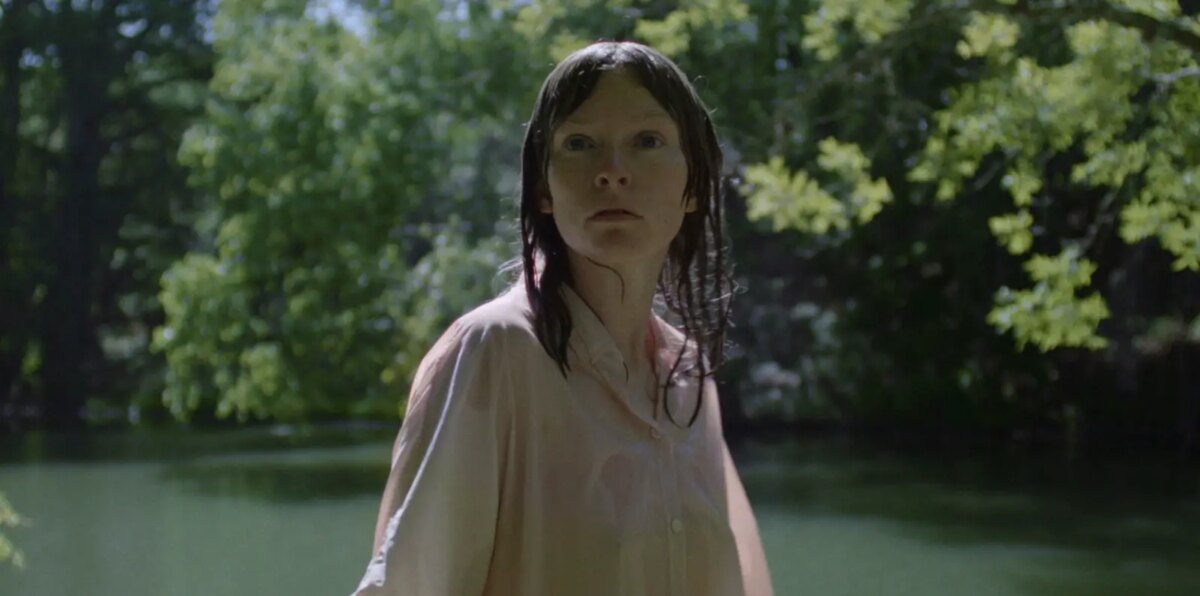
LOCARNO FILM FESTIVAL 2023 REVIEW! Photographs etch the best moments as visual memories – gatherings, occasions, or just crazy moments of laughter and joy. For decades, portraits that we often exhume from long-locked attics and boxes have reminded us of the old times and traditions while offering a nostalgic glimpse of the past. For what it’s worth, pictures like these, especially family photographs, are proof of familial bonds and relationships meant to be passed down the generations. Lucy Kerr’s Family Portrait derives its plot from the very practice followed as a tradition in Southern American states. However, skipping over the emotional and dramatic implications of a subtle family gathering for a group picture, Family Portrait instead clashes with such moments’ intimately psychological and mysteriously anxious introspection. And the result is quite intriguing and, at the same time, unsettling.
Gathered at a family home near a calm, rural, and lakeside location in Texas, a family sitting down together for a meal and a yearly family photograph to be taken shortly. Katy is visiting with her boyfriend and the official photographer, Olek, a man of Polish descent. Also gathered are Katy’s sisters, her parents, uncles, and brother-in-laws. The home is filled with at least a dozen people indulging in conversations and exchanging information. It may sound like Family Portrait is a casual mix of instances and encounters between family members meeting after a long while; however, Lucy Kerr’s idea of a family film is much more enigmatic in the film’s narrative structure and visual choreography.
“A quiet, eerie, and enigmatic unraveling of a family gathering that seeks to memorize this meeting in a photograph.”
Kerr’s presentation of a family get-together establishes its atmospheric tone in ambiguous silence and quietness. The film’s opening sequence, which later turns out to be the film’s final shot, is engulfed under forests’ rumbling and muddling voices that are hard to comprehend. Later, when the film’s characters unravel Kerr’s and co-writer Karlis Bergs’ screenplay, Nikolay Antonov and Andrew Siedenburg’s sound work sustains that tension in every conversation.
Family Portrait is a multi-layered picture of overlapping discussions that are made artistically thorough via some prolific camera work by cinematographer Lidia Nikonova. As the family gathers and starts to catch up with each others’ lives, Kerr keeps Nikonova focused on her characters’ expressions that correspond to disinterest and confusion, highlighting their prolonged detachment from each other. In another sequence, Kerr captures Katy’s father, Charles’ speech over a heavily edited photograph of his grandfather, who was made to look like a Vietnam war soldier in a picture from his enlistment during World War II. It reflects upon the unreliability of memories confided and contained in the photographs. This notion is further cultivated when most family members appear indifferent to the family photograph. It deepens when the family matriarch, Katy’s mother, disappears and is nowhere visible in the vicinity. No one except Katy worries about her mother’s absence, putting the value of the yearly tradition and the family’s closeness in question.














